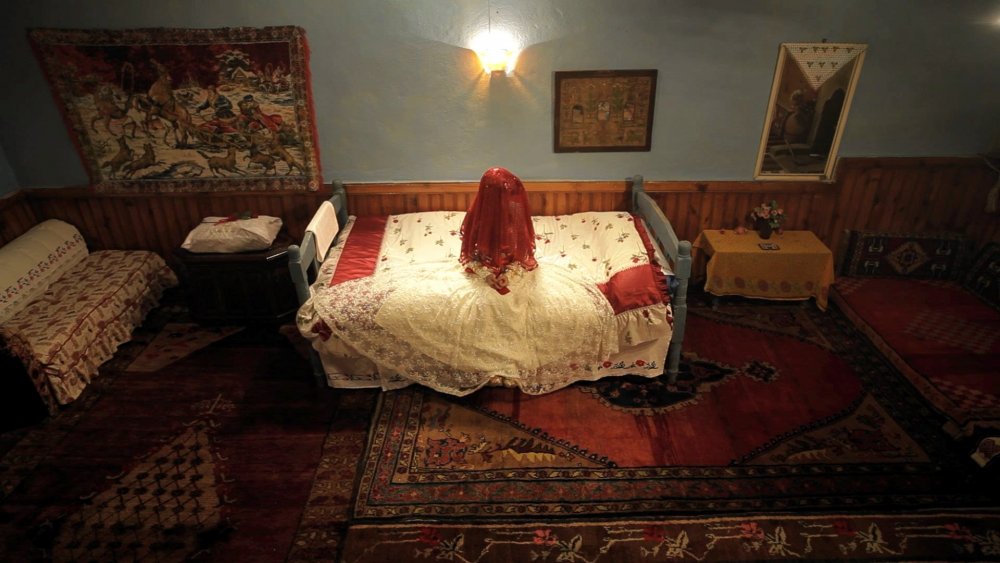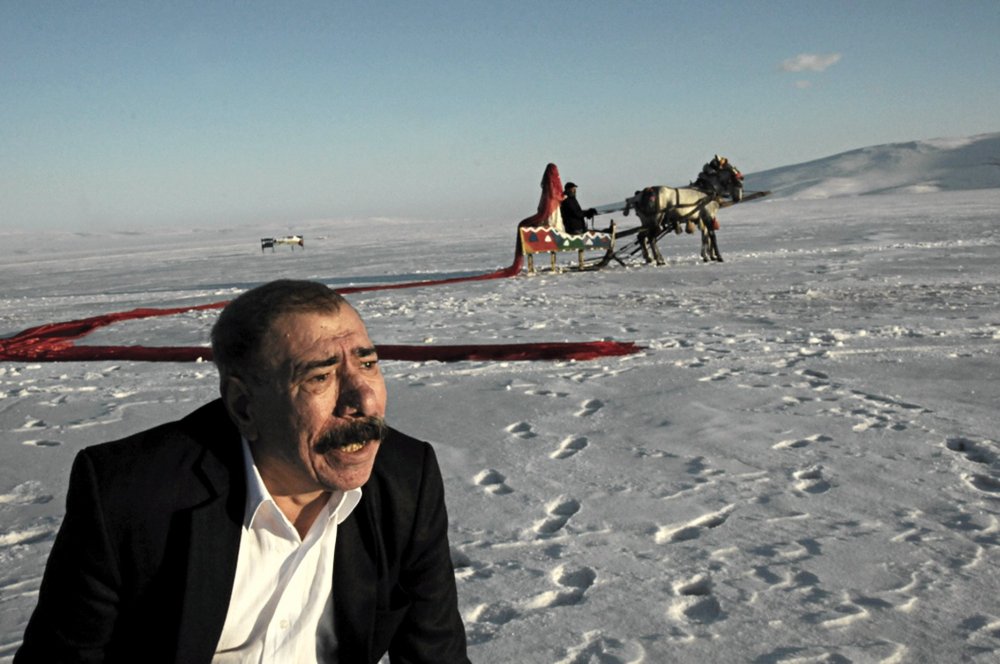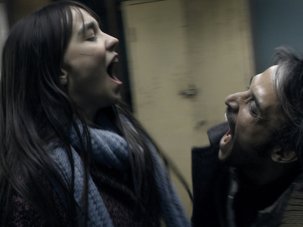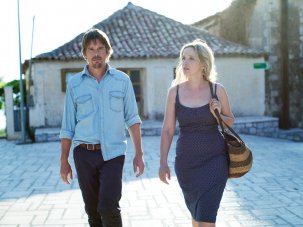from our August 2013 issue

“Which of us is more scared?” asks Ilyas Salman’s elderly bridegroom at the end of what was intended to be his wedding night. By this stage in Reis Celik’s slow-burn two-hander, the balance of power has shifted to the point where he’s come to see himself as no less a victim, maybe even more so, than his teenage bride.
Turkey 2012
Certificate PG 91m 42s
Crew
Director Reis Çelik
Producer Anil Çelik
Written by Reis Çelik
Director of Photography Gökhan Tiryaki
Editor Reis Çelik
Art Director Burcu Karakas
Electronic Music Anil Çelik
Sound Recording Ekrem Çelik
Cast
Gelin, bride Dilan Aksüt
Damat, groom Ilyas Salman
uncle Sabri Tutal
sister-in-law Mayseker Yücel
childhood sweetheart Sercan Demirkaya
older brother Ahmat Avdin
guard Volkan Sirin
sister Sevilay Aydin
mother Nazan Durmus
In Colour
[2.35:1]
Subtitles
Distributor Verve Pictures
Turkish theatrical title Lal Gece
Shorn of his shaggy moustache and his masculinity along with it (“You took me for a man, didn’t you?” he abjectly asks the girl. “You thought there was a man underneath”), wilting under the stern gaze of his father glaring from a photograph on the wall, he sits slumped on the bed as dawn breaks outside. Behind him, the girl, perhaps taking pity on him, has at last begun to undress, but it’s too late.
Celik’s fifth feature, which picked up the Crystal Bear award at Berlin, plays out in a small village somewhere in Anatolia – presumably in the present day, though specific indicators are few. Tribal and family pressures are strong. We open in a windswept graveyard where the 60-year-old Damat, his broad, pockmarked, lugubrious face suggesting years of dumb suffering, gazes silently at two tombstones – the graves, we’re later led to understand, of his own mother and a male ‘enemy’ for whose honour killings he was jailed.
From there we’re whisked into a noisy wedding celebration, all drums and shawms and ululating women, as Damat is rewarded for his obedience with a pretty 13-year-old bride, Gelin. This arranged marriage, he’s told, will end the blood feud between his family and hers.
After this prelude, we never leave the bridal chamber until the final two minutes of the film. Celik makes resourceful use of camera angles to avoid visual monotony in his confined space, first giving us several point-of-view shots as Gelin, nervously awaiting her groom, sits beneath her intricately worked blood-coloured veil and contemplates the hennaed palms of her hands, then varying his perspective as the ill-matched relationship shifts and develops through the night. In keeping with the austerity of the narration there’s no use of non-diegetic music, though expressionistically distorted sound effects accompany the nightmare sequence in which Damat desperately pursues his bride’s sleigh across a snowfield, only to see her transform into his murdered mother.

Ilyas Salman as Damat and Dilan Aksüt as Gelin both give nuanced performances that invite our sympathy without recourse to easy pathos. Celik’s script draws on elements of myth that enhance the sense of timelessness: the Scheherazade story is an obvious reference, and at one point Damat is led into telling Gelin a folktale (one that has parallels in many cultures besides Turkish) about a mortal who marries a seductive sea-creature but then becomes homesick.
“Stories are enchanted,” she reminds him when he tries to break off midway. “Once you’ve started you must finish.” There’s an inevitability, too, about Celik’s story that becomes increasingly evident as the night wears on, and by the time the camera finally cuts to the exterior of Damat’s house it has become clear what the outcome must be. The exact significance of the gunshot we hear isn’t spelled out, but it’s not hard to guess.
-
Sight & Sound: the August 2013 issue

In this issue: Frances Ha’s Greta Gerwig – the most exciting actress in America? Plus Ryan Gosling in Only God Forgives, Wadjda, The Wall,...
-
The Digital Edition and Archive quick link
Log in here to your digital edition and archive subscription, take a look at the packages on offer and buy a subscription.







